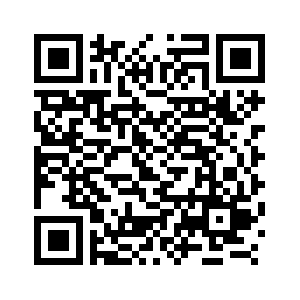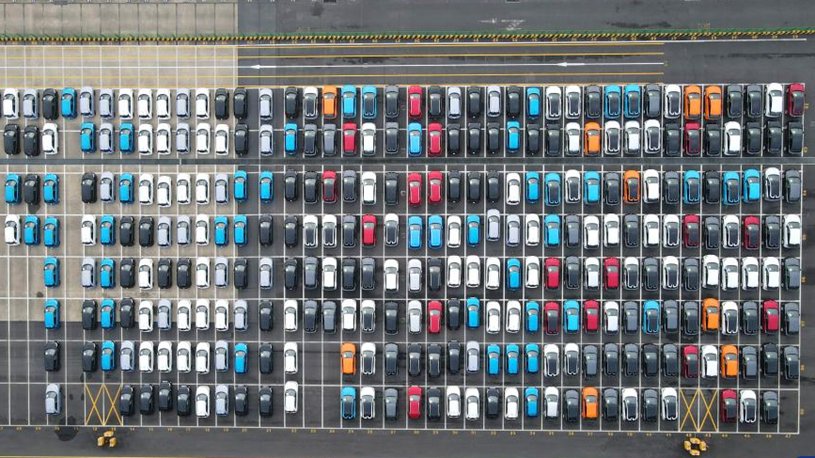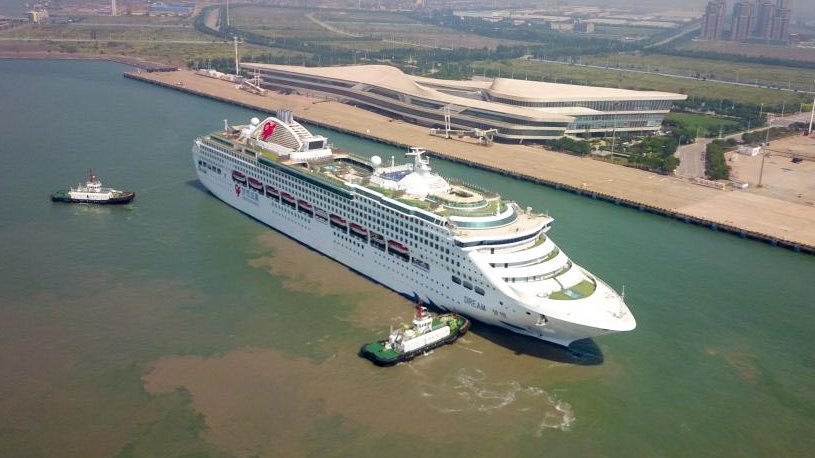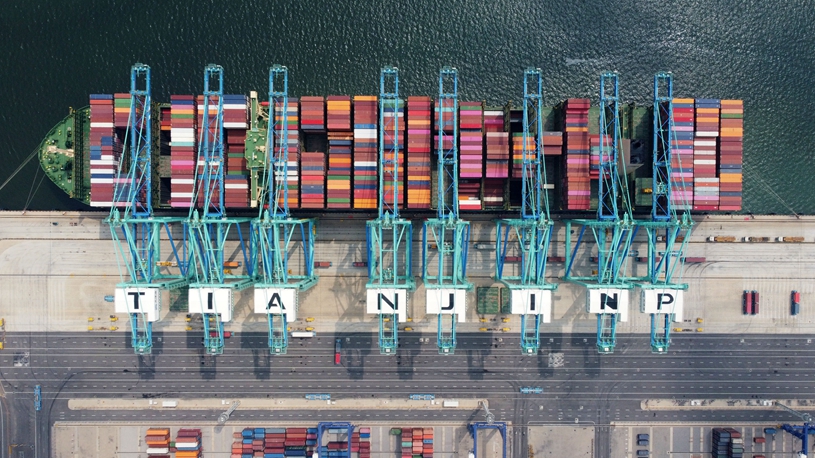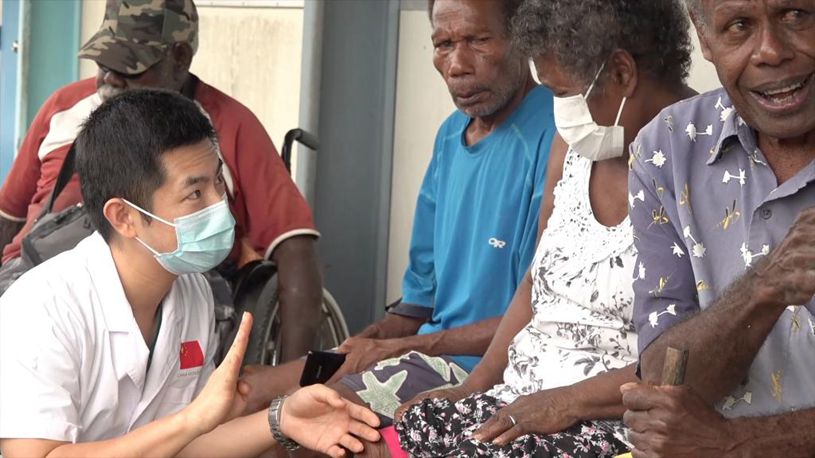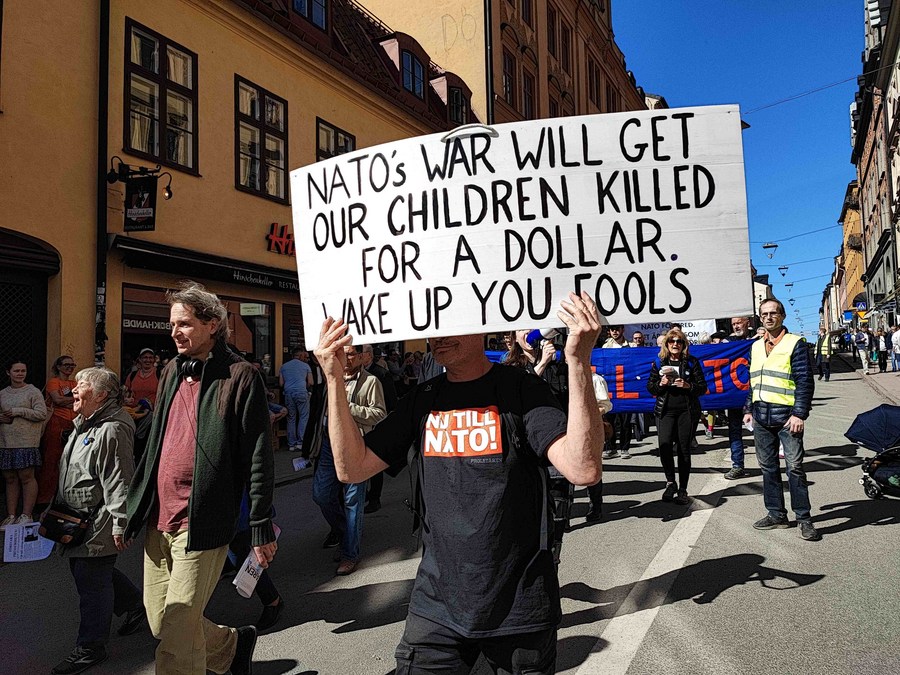
People take part in a protest against Sweden hosting a large international military exercise and the country striving to become a member of the North Atlantic Treaty Organization (NATO) in Stockholm, Sweden, on April 22, 2023. (Photo by Patrick Ekstrand/Xinhua)
It's urgently necessary that an international commission be established to investigate how far NATO can deviate legally from its 1949 Treaty.
STOCKHOLM, July 12 (Xinhua) -- "I consider it of paramount importance that NATO's policies are one gross violation of its own charter and of international law," said Jan Oberg, director of the Transnational Foundation for Peace and Future Research, in a recent interview with Xinhua.
The NATO Summit is held in Vilnius, Lithuania, on Tuesday and Wednesday. NATO Secretary-General Jens Stoltenberg said ahead of the summit that the bloc would strengthen its deterrence and defence, and set an even more ambitious defence spending target.
Oberg said that NATO's 1949 Treaty, with Article 5 about mutual defence among its European members, was "distinctly defensive in nature." But the bloc is violating its own treaty "daily" and is expanding globally.
The provocative -- anything but "defensive" -- alliance has broken its Treaty since 1999 when it first violated international law in an "out-of-area operation in Yugoslavia," Oberg noted.
Additionally, he said that NATO's Treaty was about its members and all members had to be European. And when NATO ran out of new members, it expanded -- "the only raison d'etre of today's NATO."
Then NATO "invented a new category that's nowhere in the NATO Treaty -- partners," said Oberg, noting that the organization has 39 partner states and plans to open an office in Tokyo. "I do denounce the plan of setting up a NATO office in Tokyo in that light."
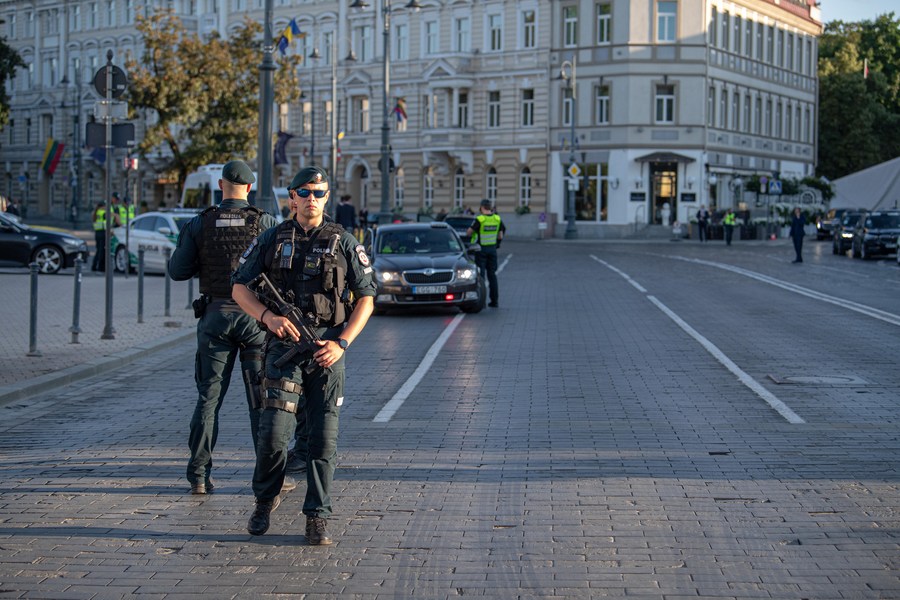
Police personnel are seen on a street in Vilnius, Lithuania, July 10, 2023. (Photo by Alfredas Pliadis/Xinhua)
The Vilnius Summit "offers no indications that NATO has learned any lessons or re-thinks anything in the light of the Russia statements of concern over roughly 30 years," said the scholar, recalling that the Soviet Union, in its former leader Mikhail Gorbachev's time, was indeed given promises that NATO would not expand "one inch" if it was accepted that unified Germany would be a full NATO member.
"It's urgently necessary that an international commission be established to investigate how far NATO can deviate legally from its 1949 Treaty," he added.
Oberg viewed as a blunder NATO's plan to bring Ukraine in as a member in future.
"There are lots of ways to make Ukraine genuinely secure outside NATO. But NATO wants to weaken Russia by cynically using Ukraine," he said.
Oberg said that NATO's pledge to ask its members to invest a minimum of 2 percent of GDP annually on defence is "absurd," because a military budget should be decided according to a comprehensive threat analysis, followed by a priority discussion and never be tied to a country's economic ups and downs.
Oberg regarded militarism as the main factor about which NATO and EU countries try to remain united, "I do not think it will succeed."
"Making oneself strong on one dimension while losing out on all other power dimensions -- diplomacy, economy, legality, creativity, vision and culture -- is a recipe for disaster. NATO no longer argues or analyses, it postulates and judges -- judges everybody else," he said.
"If NATO 'wins' this game after having been the leading creator of 'the most dangerous and unpredictable security environment since the Cold War,' the rest of the world will likely approach an eschatological moment," he concluded.■
